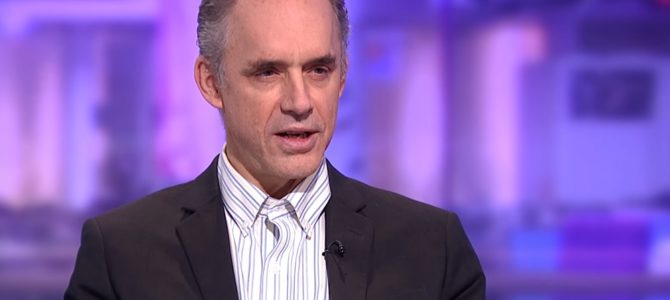
The Intellectual Dark Web (IDW) has been badly misunderstood by thinkers on both the left and right of the political spectrum. Perhaps the problem is assuming that people who malign this group of classically liberal pundits are thinking, because in many ways, that’s exactly the opposite of what they’re doing.
Justin Charity, a political writer for The Ringer, recently wrote an attempted takedown of the IDW crowd. He posited that these guys like Joe Rogan, Sam Harris, Ben Shapiro, Jordan Peterson, and Claire Lehmann are always complaining about political correctness, restrictive speech rules on college campuses, cancel culture, wokeness, and wrongthink.
Charity writes:
The term ‘political correctness’ unites conservatives, libertarians, and vintage liberals in defense of various comedians, rappers, and columnists; and now ‘wrongthink’ unites conservatives and libertarians in defense of George Zimmerman and Alex Jones. ‘Wrongthinkers’ aren’t frustrated with liberals who have somehow failed to discover them, their biases, their anxieties, and their ideas; ‘wrongthinkers’ are frustrated with liberals who have declined to take their ideas and their style seriously in the first place.
Instead of reading the work put forth by IDW outlets like Quillette (for which I am a contributor), some leftists assume that, because the writers and journals don’t jump on board with progressive ideology, they must be alt-right. Meanwhile, conservatives know these IDW cats are not particularly conservative. So what are they? Those who classify themselves as part of this group would say, first and foremost, that they are critical thinkers, proponents of no ideology, beholden to no tribe.
When the left took a more progressive turn, and branded critical identity theory as a guideline for perspective, policy, morality, and social interaction, classical liberals—who believe first and foremost in the rights of the individual and the necessity of critical thought—found they had no place left to call home within the party. These intellectuals became politically homeless. They were reading articles about the problems inherent in whiteness, how men and women were interchangeable based on feelings, how relative oppression levels shape everything, and about how Western culture is apparently the perpetration of pure evil.
How the Intellectual Dark Web Took Hold
As the English-speaking intellectual world tightened up due to globalism, social media, the emergence of international online journals and podcasts, and the cross-pollination of writers and ideas, the IDW began to take shape. Writers who dissect ideas for a living were aghast to find that the work they had been doing was now to be viewed through lenses that had nothing to do with intellectual rigor, but were entirely about emotional realities based in grievance, oppression, and identity.
Using these theories as the exclusive basis for how to think about governance, economics, foreign affairs, social policy, and the humanities is intellectually lazy at best and veering towards malevolence at worst. Writing in The New York Times, Bari Weiss and Damon Winter characterized the loose affiliation of IDW pundits this way:
Most simply, [the IDW] is a collection of iconoclastic thinkers, academic renegades and media personalities who are having a rolling conversation — on podcasts, YouTube and Twitter, and in sold-out auditoriums — that sound unlike anything else happening, at least publicly, in the culture right now. Feeling largely locked out of legacy outlets, they are rapidly building their own mass media channels.
Academia tightened up. Contrarian academics weren’t getting published. The gatekeepers who put out the journals and books had to be circumvented. Intellectuals who were being shut out of academia had to take hold of the means of production and get into online platforms. This is how they landed on YouTube, in podcasts, and creating their own blogs and journals.
The Classical Notion of Free Speech
Liberalism once claimed freedom of speech as its cornerstone. For those who come from either left or right and veer into the milieu of the IDW, it is the classical primacy of free speech that compels them. The reason the IDW is cast as conservative is because conservatives and libertarians are the ones currently advocating for free speech at all costs, even if what’s being said is vile. This used to be the domain of the left, which stuck to ideas such as “I despise your views, but I respect your right to have them,” (Jules Feiffer’s “Little Murders”).
Leftists en masse have since abandoned free speech as a driving principle in favor of an ideology that would penalize speech either by law or social disapprobation. This is what the IDW is fighting. These classical liberals, who believe in personal responsibility, rationalism, logic, and critical thinking, but not entirely aligned with contemporary conservative views, Donald Trump, or trans ideology or privilege theory, are a roundly misinterpreted group.
It is not, as Charity writes, that the IDW thinkers are frustrated that contemporary liberals don’t take their ideas seriously, but that their ideas used to be considered classically liberal ideas. Now the ideas of the IDW are too nuanced for the leftists, who are more comfortable shouting slogans and rattling off feelings-based position points that are often contradictory.
Uri Harris, writing for Quillette, recently asked if the IDW is ideologically diverse. He cites a recent, non-rigorous survey of some notable IDW thinkers to show that they personally tend to link with far-left ideas, while pointing out that these thinkers mostly end up speaking with, and on, conservative platforms.
Yet Harris is asking the wrong question. Political ideology has no claim to the IDW, because political perspective is not the driving thought behind the movement.
Rational Thought Contradicts Today’s Progressive Dogma
The shifting sands of progressive ideology, where morality shifts depending on the level of oppression of the person holding the moral view or the relative privilege being wielded in service to a moral perspective, does not meld with rational thought. In fact, recently many on the left have begun asserting that rationalism itself is a racist concept, born of whiteness in the Enlightenment, and that its shackles need to be cast off. Some years ago, the very concept of debate was countered by student groups who attended debates, then refused to debate according to the standard terms, instead throwing down spoken word on the basis that the structure of debate itself was racist.
What can intellectuals do when everything they believe in regarding individual liberty is recast as cultural imperialism? They find themselves cast out, politically homeless, and yes, aghast when the very foundations upon which they have ever thought everything—foundations based in philosophy, dialectical theory, Kantian metaphysics, Judeo-Christian morality, and then thought about and rethought again for clarity toward human equality—are thrown out for no other reason than that those who conceived of these things are now considered oppressors.
The Intellectual Dark Web is an attempt to think clearly, as objectively as possible, with an awareness of potential biases, in an upholding of modernist critical thinking. Those who fall within this group do not share political perspectives because it is not a political movement. IDW is an intellectual movement, where individual freedom is paramount, free speech is non-negotiable, and rational, critical thought is the only reasonable way to discern anything about either the natural world or the self. The IDW is not in service to an ideology, because it questions the basis of any and all ideologies.
That is what makes it a threat to progressivism. The alt-right reaps a benefit from the IDW merely because the IDW does not believe in free speech restriction. But the right should be aware that the compulsion to not censor speech does not equal advocacy of their views, but just an acknowledgement of their right to have them.









